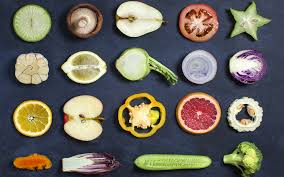Vegan labeling and certification is of great importance to ensure that people who accept and follow the vegan diet can reach the products they want quickly and safely. On the other hand, in order for companies producing vegan foodstuffs to compete in this market and to survive, their products must be examined, tested, approved and certified by an accredited organization. The trust of both consumers and manufacturers to vegan products depends on these certification studies.
The vegan label is an official voluntary label recognized worldwide by people looking for guaranteed products that do not contain food of animal origin. The vegan label on the packaging of the products proves that the product does not contain food of animal origin and has not been tested on live animals. Producer companies are also checked before certification in terms of production methods, production conditions and packaging processes.
Therefore, in order to successfully reach a customer base with a vegan understanding, manufacturers need to use a vegan label and a vegan certificate. Vegan criteria are increasingly included in the demands of large distribution stores.
In short, the vegan document is a transparency indicator that confirms the control of a legitimate and independent authority body and is valid worldwide.
Vegan Certification Process
The vegan labels and vegan certificate issued to companies after the audits carried out by accredited organizations are recognized all over the world.
In general, the vegan certification process is completed in 4-6 weeks, but for very large companies this period may be longer. Companies that offer their products to consumers with vegan ethylkets have proven that each product is vegan, that these products do not contain any animal ingredients or animal by-products, do not use any animal ingredients or by-products in production, and that no tests are applied on live animals.
In this process, a series of tests such as feed or nutrition tests, toxicity tests, animal tests and environmental safety tests are carried out by authorized organizations. In these tests, it is also evaluated that the animals were not maltreated, injured or killed. In the animal world, a product whose sole purpose is to kill is not approved. For example, pesticides are not accepted, but insect repellents are accepted.
The culture medium of the companies should not be of animal origin and this should be documented. Animal genes are not allowed, but non-animal genetically modified organisms are allowed. If sugar is an ingredient, documents showing that the sugar producing company does not filter with bone charcoal must be provided. If a liquid flavoring ingredient is used, in addition to the bone charcoal filtering, documentation must be submitted that no animal by-products are used for cleaning or defoaming. If there are shared machine and machine cleaning procedures, information on this should also be submitted to the competent authority.
After the manufacturer company delivers the detailed product list and the documents given above to the authorized institution, the authorized institution examines the shipment and informs the company if there are any questions or requests for additional documents. During the review process, products and all documents that require contact with suppliers and manufacturers are examined. After this review is complete, the application is rejected or a one-year period approves vegan label use.
The vegan logo should not be changed in any way. Also, this sign should not be used to represent the company, the label only represents the products. If potential violations are not corrected within 21 days, the authority may terminate the use of the vegan label.
After a one-year period, the company and the approved product list are reviewed and, if appropriate, the use of vegan labels is extended for another year.
If any product content bearing the vegan label changes, the company must immediately notify the authorized institution of this and submit a new ingredient list for verification and approval processes.
In short, vegan certification offers consumers the opportunity to choose products that are suitable for their nutritional preferences, and manufacturers provide the opportunity to prove that raw materials, production processes and finished products comply with vegan food production standards.
TÜRCERT Technical Control and Certification Inc., accredited by national and international organizations, closely follows the developments in the world in the field of science and technology and has a strong staff that constantly improves itself. It also uses modern test equipment and applies test methods accepted all over the world. TÜRCERT also offers vegan and vegetarian certification services within the scope of testing and certification services it provides to companies from all sectors with this strong infrastructure.



